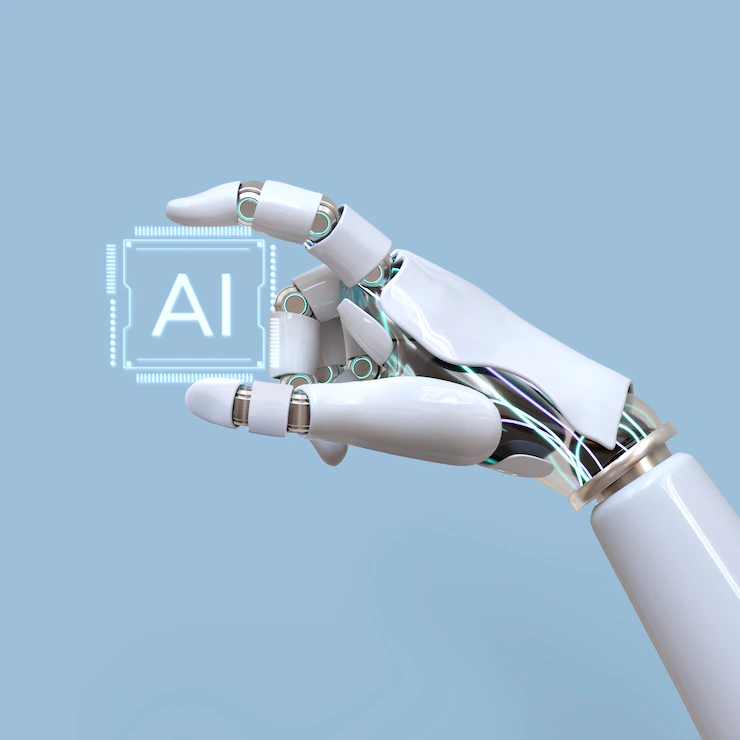
Decoding the World of AI: Understanding the Basics of Artificial Intelligence
Artificial Intelligence (AI) [ai] is a technology that has become increasingly pervasive in our daily lives. From voice assistants like Siri to recommendation algorithms on streaming platforms, AI is powering a wide range of applications. Understanding the basics of AI is crucial in today's world, as it allows us to comprehend how this technology works and the potential impact it may have on our society.
This includes understanding concepts such as machine learning, neural networks, and deep learning, which are essential components of AI systems. By decoding the world of AI, we can better grasp its abilities, limitations, and ethical implications, enabling us to navigate the rapidly evolving landscape of artificial intelligence more effectively.
A Beginner's Guide: 10 Essential Concepts to Grasp About Artificial Intelligence
Artificial intelligence (AI) is rapidly transforming various industries and becoming more integrated into our daily lives. For beginners looking to understand AI, there are 10 essential concepts to grasp. First, it is important to understand what AI is and its basic principles. AI encompasses machines that can simulate human intelligence.
Next, understanding machine learning, which allows AI systems to learn from data and improve over time, is crucial. Deep learning is a subset of machine learning that focuses on neural networks and has been instrumental in many AI advancements. Natural language processing (NLP) enables computers to understand and interpret human language, while computer vision allows machines to perceive and understand visual information.
Other important concepts include robotics, automation, ethics and bias in AI, explainability, and AI's impact on various industries. By grasping these essential concepts, beginners can gain a basic understanding of AI and its potential implications.
The ABCs of AI: 7 Fundamental Concepts to Understand Artificial Intelligence
Artificial Intelligence (AI) has become an integral part of our daily lives, from voice assistants like Siri and Alexa to personalized recommendations on streaming platforms. If you've ever been curious about how AI works and want to grasp the fundamental concepts, then you've come to the right place. Here are seven essential concepts that will help you understand the ABCs of AI.
1. Algorithms:

At the core of AI are algorithms, which are step-by-step instructions that the computer follows to solve a problem or complete a task. These algorithms can vary in complexity and can be designed to learn from data, make predictions, recognize patterns, or optimize processes.
2. Big Data:

AI is heavily reliant on large datasets, known as big data. This data is collected from various sources, such as social media, sensors, and even user interactions. Big data provides the necessary information that allows AI systems to learn and make informed decisions.
3. Machine Learning:

Machine learning is a subset of AI that focuses on enabling systems to automatically learn from data without being explicitly programmed. By using statistical techniques and algorithms, machine learning enables AI systems to improve their performance over time through experience.
4. Neural Networks:

Neural networks are a type of machine learning model that mimics the structure and function of the human brain. They consist of interconnected nodes, or " neurons," that process and transmit information. Neural networks are capable of learning complex patterns and have been instrumental in many AI breakthroughs.
5. Deep Learning:

Deep learning is a specific approach to neural networks that involves using multiple layers of interconnected nodes. These layers allow the network to learn and extract higher-level features from the data. Deep learning has been particularly successful in image and speech recognition tasks.
6. Natural Language Processing (NLP):

NLP is an AI capability that enables computers to understand and interact with human language. It encompasses tasks such as speech recognition, language understanding, and language generation. NLP is the driving force behind virtual assistants and chatbots.
7. Ethics and Bias:

With the increasing adoption of AI, ethical considerations and bias have become crucial topics. AI systems can inadvertently perpetuate biases present in the data used to train them, leading to unfair outcomes. It is vital to develop AI systems that are transparent, unbiased, and accountable to ensure their responsible use.
AI 101: Understanding the Basics and Breaking Down the Jargon
Artificial Intelligence (AI) is no longer a futuristic concept but a reality that is shaping our world today. It has permeated various aspects of our lives, from voice assistants like Siri and Alexa that help us with everyday tasks, to self-driving cars that are revolutionizing transportation. AI also plays a crucial role in personalized recommendations on platforms like Netflix and Amazon, enhancing our user experience.
Moreover, it is employed in fraud detection systems to identify potential threats and protect individuals and businesses. However, for those who are new to the concept, understanding the basics of AI and the associated jargon can be overwhelming. This article aims to provide a simple breakdown of AI, explaining its fundamental concepts and demystifying its terminology, making it more accessible and understandable to everyone.
Unlocking the Secrets of AI: 8 Simple Steps to Grasp the Fundamentals

Artificial Intelligence (AI) is a rapidly growing field that has the potential to revolutionize industries and improve our everyday lives. However, understanding the fundamentals of AI can seem daunting and complex. This heading promises to provide a simple and easy-to-follow guide on how to grasp the basics of AI. By unlocking these secrets, readers can gain a solid foundation in AI and be prepared to delve deeper into its applications and potential. This accessible approach to learning about AI can help individuals stay ahead in an increasingly AI-driven world.
To understand AI, it's crucial to have a solid foundation in mathematics and computer science. Concepts like linear algebra, calculus, probability, and algorithms form the building blocks of AI. Enroll in online courses or take up textbooks to familiarize yourself with these principles.
Machine learning is a subset of AI that focuses on algorithms that enable systems to learn from data and make predictions or decisions without being explicitly programmed. Explore courses and tutorials that introduce you to popular machine learning techniques like regression, classification, and clustering.
Python is the programming language of choice for many AI applications. Its simplicity and extensive libraries make it ideal for AI development. Familiarize yourself with Python syntax, data structures, and libraries like NumPy and Pandas, which are widely used in AI projects.
Apply your knowledge by working on AI projects. Start small with tasks like image classification or sentiment analysis and gradually move on to more complex projects like natural language processing and computer vision. Join online communities and forums to seek guidance and collaborate with like-minded individuals.
Deep learning, a subfield of machine learning, is responsible for remarkable breakthroughs in AI, such as speech recognition and image generation. Dive into neural networks, understand backpropagation, and explore popular deep learning frameworks like TensorFlow and PyTorch.
The field of AI is rapidly evolving, with new techniques and advancements being made regularly. Stay updated by reading research papers, attending conferences, and following leading AI researchers and organizations. This will help you stay ahead of the curve and deepen your understanding of AI.
Connect with other AI enthusiasts and professionals by joining online communities and attending industry events. Engaging with like-minded individuals allows you to exchange ideas, gain insights, and collaborate on projects. Building a network will also open doors to job opportunities and mentorship.
If you're passionate about AI and want to take your knowledge to the next level, consider pursuing advanced education. Many universities offer specialized AI programs, such as master's degrees or certificate courses. These programs provide in-depth knowledge and hands-on experience with cutting-edge AI technologies.
Unlocking the secrets of AI may seem daunting at first, but by following these eight simple steps, you can grasp the fundamentals and embark on a journey that leads to exciting opportunities in the world of artificial intelligence. Remember, persistence, curiosity, and a willingness to learn are key to unlocking the potential of this transformative technology. So, are you ready to dive into the world of AI and shape the future of technology?
Conclusion
Decoding the world of AI and understanding the basics of artificial intelligence is crucial for any individual or organization looking to stay competitive in today's technologically advanced world. AI has the potential to revolutionize industries and improve efficiency and productivity in various sectors. By understanding the fundamentals of AI, individuals can harness its power to make informed decisions and drive innovation. Moreover, having a grasp of AI basics enables individuals to participate in discussions and developments in this rapidly evolving field. Overall, with the increasing prominence of AI, gaining knowledge about its basics is not only important but also essential for personal and professional growth.